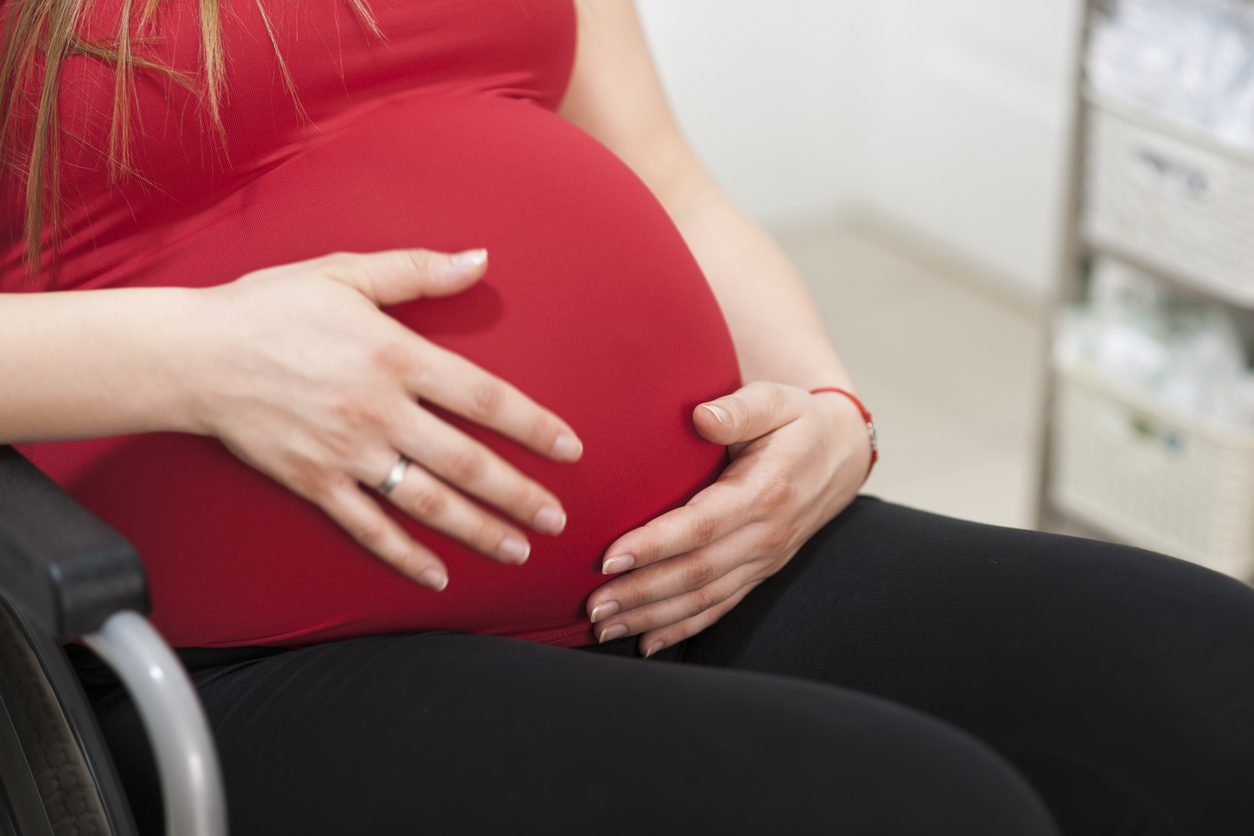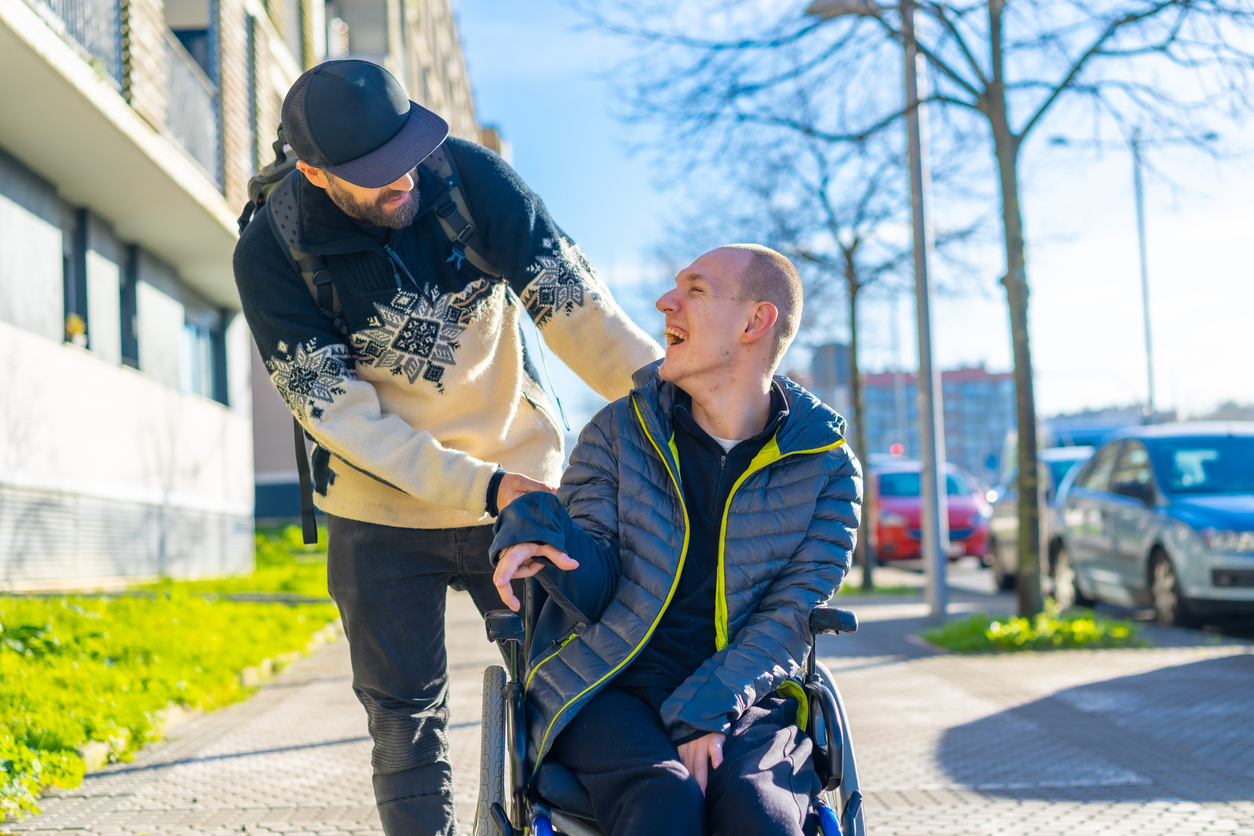Pregnancy and SCI

A common question women with spinal cord injury (SCI) have post-injury is: will I be able to have children?
There is no evidence that SCI affects a woman’s fertility or ability to carry a pregnancy. However, women with spinal cord injury can have some unique challenges, so it’s important to be as informed as possible before making the decision to become pregnant.
With the correct medical, physical, and emotional care, women with SCI often have pregnancy experiences that are very similar to those of able-bodied women.
What to Expect During Pregnancy with Spinal Cord Injury
One of the most important first steps is to find a physician OB/GYN who is knowledgeable about pregnancy and SCI. It’s crucial to have medical insight and advice for your particular injury and situation to guide you throughout your pregnancy.Pre-Pregnancy
When possible, get a pre-pregnancy evaluation by a qualified medical professional and discuss establishing a pregnancy care team with the right qualified experts for your particular situation. Care providers on this team may include:- Primary Care Provider
- Physiatrist (i.e. physical medicine and rehabilitation doctor)
- SCI Rehabilitation Team (i.e. occupational therapist, physiotherapist)
- Maternity Care Providers (i.e. obstetrician, midwife)
- Maternal Fetal Medicine Team (i.e. maternal fetal medicine doctor, advanced practice nurse)
Getting Pregnant
Most women with normal fertility and SCI do not need any special procedures or specialists to become pregnant. It may be advisable not to get pregnant if your spinal cord injury is recent, in order to give your body time to heal. Most women’s menstrual cycle recommences 2-8 months post injury. It is also important to discuss any medications you take before conceiving, to determine if any would be problematic during pregnancy.Body Changes During Pregnancy with SCI
With all women, pregnancy causes a lot of changes within the body. There are special considerations women with SCI should consider, however, to be best prepared as the pregnancy progresses.Spasticity
Some women with SCI experience an increase in spasticity during pregnancy. Massage and changes in body position may help relieve spasms. Not all spasms are caused by pregnancy, however, and could also be a sign of a urinary tract infection or pain/pressure below the level of injury.Pressure Injuries
Pressure injuries may be more common during pregnancy. More frequent transfers may be needed, especially as the baby grows.Nutritional Needs
A woman’s nutritional needs change during pregnancy as more nutrients are needed to support the growing fetus. It’s important to ensure you are getting adequate nutrition during the course of your pregnancy to support the health of both you and your baby. Complications like pressure injuries are slower to heal if nutrition and wellness are inadequate.Bladder and Bowel Function
Bladder: The growing fetus puts additional pressure on the bladder and may decrease the amount of urine your bladder can hold, so you may need to make changes to your bladder management program. Work with your care team to manage frequency of urination, urgency to urinate, and risk of urinary tract infections. Intermittent catheterization on a more frequent basis may be needed. Bowel: Constipation can be an issue for all women during pregnancy. In addition to the increased pressure on the bowel from the baby, many women experience a decrease in bowel motility. Evaluate your bowel management program as your pregnancy progresses and make changes to your routine and/or medications as needed.Autonomic Dysreflexia
For women with a spinal cord injury at T6 and above who have experienced autonomic dysreflexia (AD) due to their injury, the risk of AD during pregnancy may be higher. It’s important to review any medications you take for AD with your doctor to ensure they are safe during pregnancy. Contractions during labor and delivery can also cause AD and blood pressure should be monitored throughout your pregnancy, labor, and delivery. Continue to monitor for AD in the weeks following delivery as well.Labor and Delivery for Women with SCI
Women with SCI may not experience the common signs they are going into labor (like painful uterine contractions) due to loss of sensation. Symptoms may appear as shoulder or back pain, sinus pain, or increased spasticity, for example. It may also be possible to feel your uterus tightening by placing a hand on your abdomen. Some additional things women with SCI should consider during labor and delivery include:- An epidural anesthetic, especially for women with an injury at T6 and above
- A foley catheter during labor to negate the need for intermittent catheterization
- Consistent monitoring of blood pressure to look for signs of AD
- Frequent repositioning to reduce risk of skin breakdown
- IV fluids in the upper arm rather than the lower forearm so the IV line does not get in the way of frequent repositioning
Karen’s Story
Karen is a mother to two beautiful children - one girl and one boy. She has also lived with SCI since she was a teenager due to an arteriovenous malformation in her spine. She faced her challenges due to SCI with grace and strength throughout her life, and pregnancy and childbirth were no exception. During her first pregnancy, she was frustrated with the difficulty she had finding information about pregnancy and childbirth for women with SCI, and she vowed to share her story so that other women would feel less alone. Along with several professionals with experience with pregnancy and SCI she created the SCI and Pregnancy Perinatal Interest Group, a small, dedicated group of individuals who work hard to help increase knowledge and raise awareness. “I do this work in the hopes that women who are thinking about pregnancy will realize that they can do it and that they are not alone.”- Karen H., Mother to Colin and Laura
Join the Thrive Community!
The Thrive Community Facebook Group is a private space for any person with a disability, as well as caregivers and healthcare providers that touch their lives. Our purpose is to provide a safe, educational space for group members to ask every question, connect with their peers, and empower each other through communication and connection. Our conversations are led by incredible individuals who themselves are living and thriving. For more enlightening resources, information, and discussion, join the Enemeez® Thrive Community today! Disclaimer: The material contained is for reference purposes only. Quest Products, LLC does not assume responsibility for patient care. Consult a physician prior to use. Copyright 2021 Quest Products, LLC. Sources:- https://www.acog.org/clinical/clinical-guidance/committee-opinion/articles/2020/05/obstetric-management-of-patients-with-spinal-cord-injuries
- https://askus-resource-center.unitedspinal.org/index.php?pg=kb.page&id=1586
- https://scisexualhealth.ca/wp-content/uploads/2015/05/Pregnancy-and-SCI-booklet-V7.pdf
- https://sci-bc.ca/wp-content/uploads/spin-fall-2015-final.pdf












